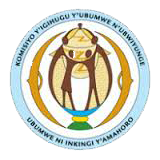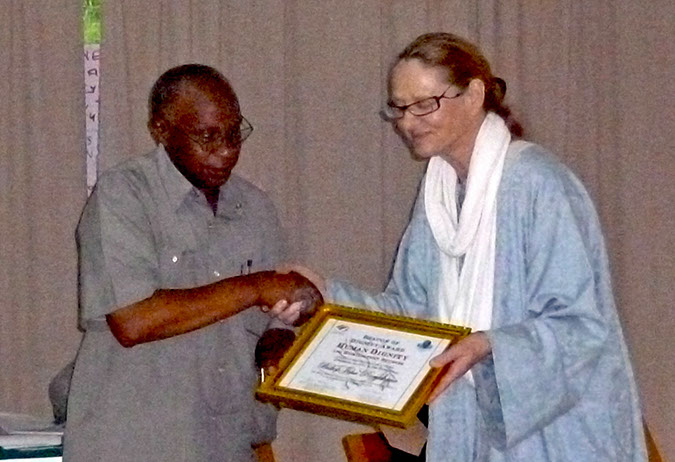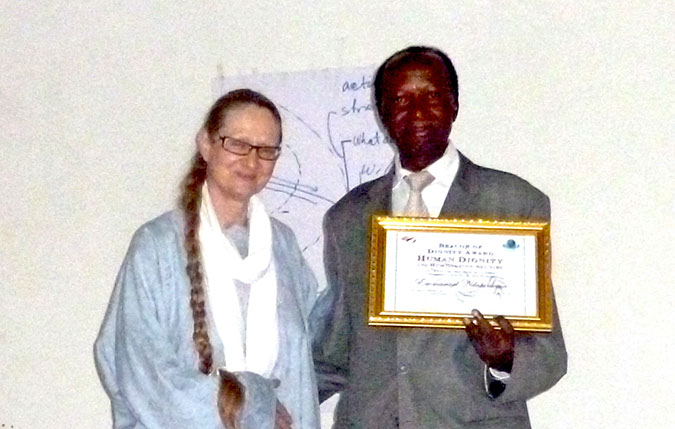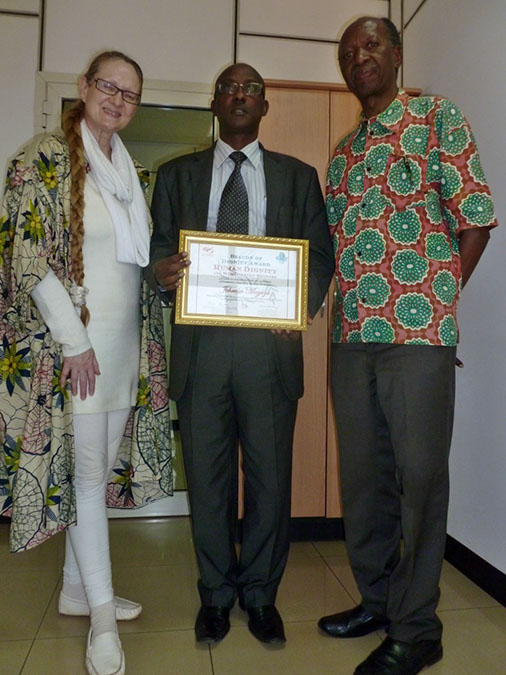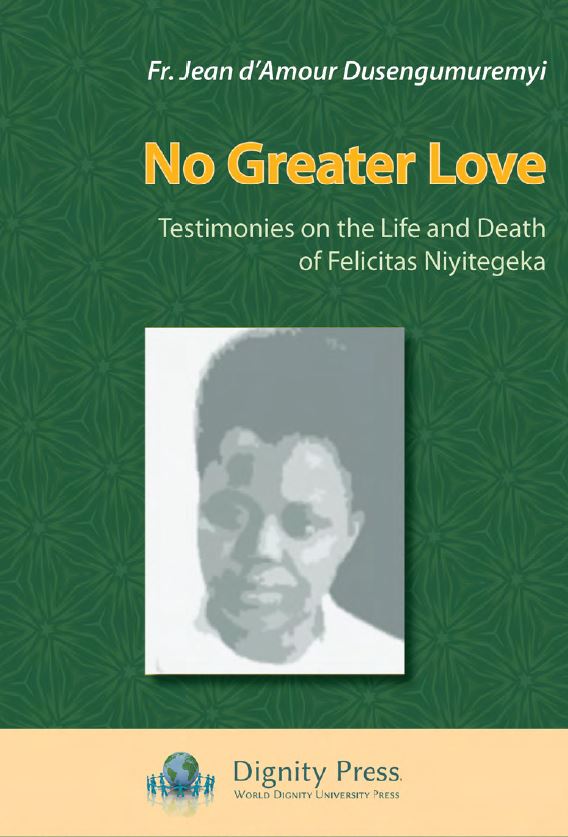Newsletter Nr. 25 (June 2015, subsequent to our 25th Annual Conference of Human Dignity and Humiliation Studies, in Kigali, Rwanda, 2nd - 5th June 2015)
Compiled by Evelin G. Lindner, in 2015
(Note: This newsletter is written in British English, since this conference took place outside of the U.S. In our NY workshops, we usually use American English.)
Contents
• Pictures
• Thanks!
• Evelin Lindner's reflections after our conference
• Your reflections after our conference
• Announcements and Good News
• Welcome Again!
Pictures
(Important note to our conference particants: During our conferences, we always make an effort to ask for your permission to have your pictures posted on this website. However, you may have overheard or misunderstood our question, or you may have changed your mind since, either in total or for specific pictures/videos, please let us know! Thank you! Since we wish to walk the talk of dignity, it is very important for us to do our utmost in respecting everybody's privacy. We refrain from gathering written permissions from you during our conferences, since we value the building of mutual trust in relationships, and we also would like to refrain from contributing to an ever more bureaucratic and legalistic society.)
|
Still pictures:
(Important note to our conference particants: During our conference, we asked for your permission to have your pictures posted here, however, if you changed your mind since, either in total or for specific pictures/videos, please let us know! Thank you! Since we wish to walk the talk of dignity, it is very important for us to do our utmost in respecting everybody's privacy. We refrain from gathering written permissions from you during our conferences, since we value the building of mutual trust in relationships, and we also would like to refrain from contributing to an ever more bureaucratic and legalistic society.) |
 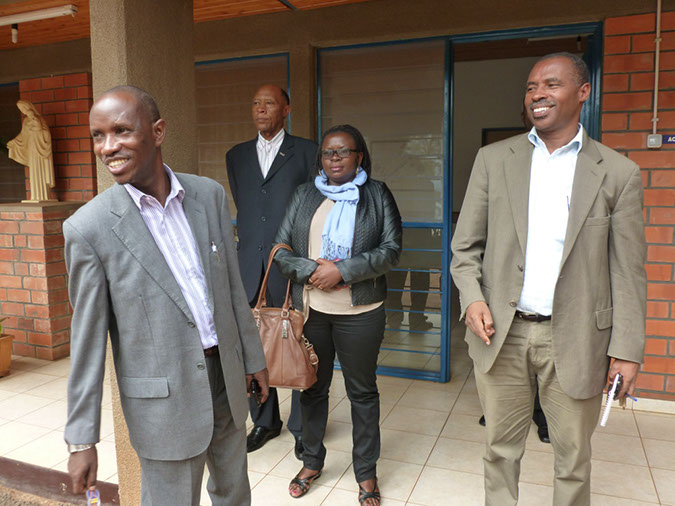    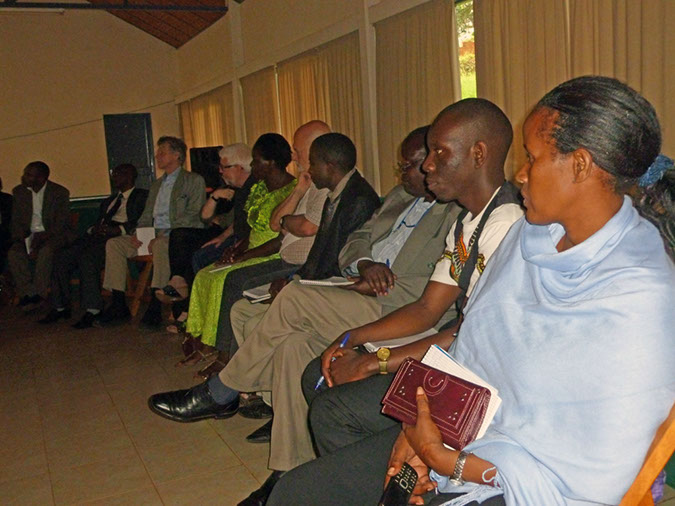 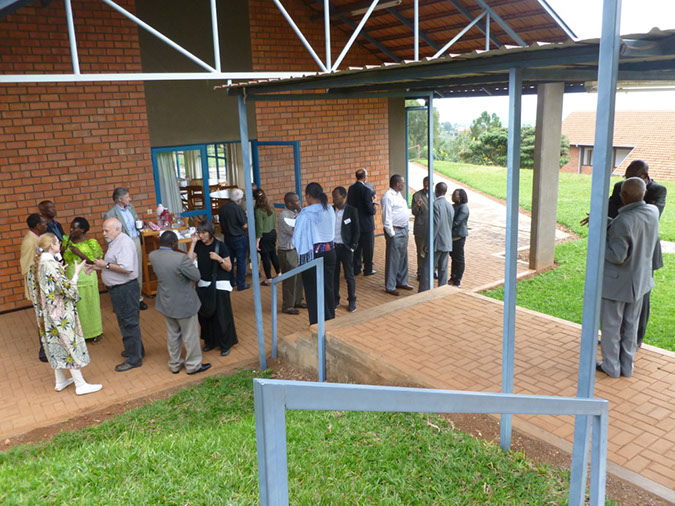  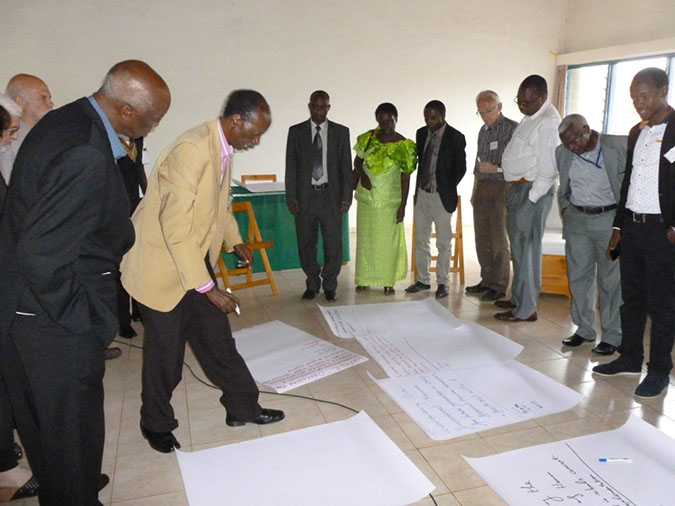   |
| Day One, 2nd June 2015 The conference started at NURC on 2nd June at 9.00 in the morning. From there, participants proceeded to the Foyer de Charité Sainte Trinité de Rebero Kigali, where the main conference took place, first with introductions, and then with the planning of the Dignilogues for the rest of the conference. • Please click on the pictures at the top or here to see all the 82 photos from Evelin's camera Thank you most warmly, dear Nira Shahaf, for taking such wonderful photos! • Please click on the pictures at the bottom or here to see all 32 Dignilogue posters from Evelin's camera • See also our Dignilogue Themes and our Appreciative Introductions |
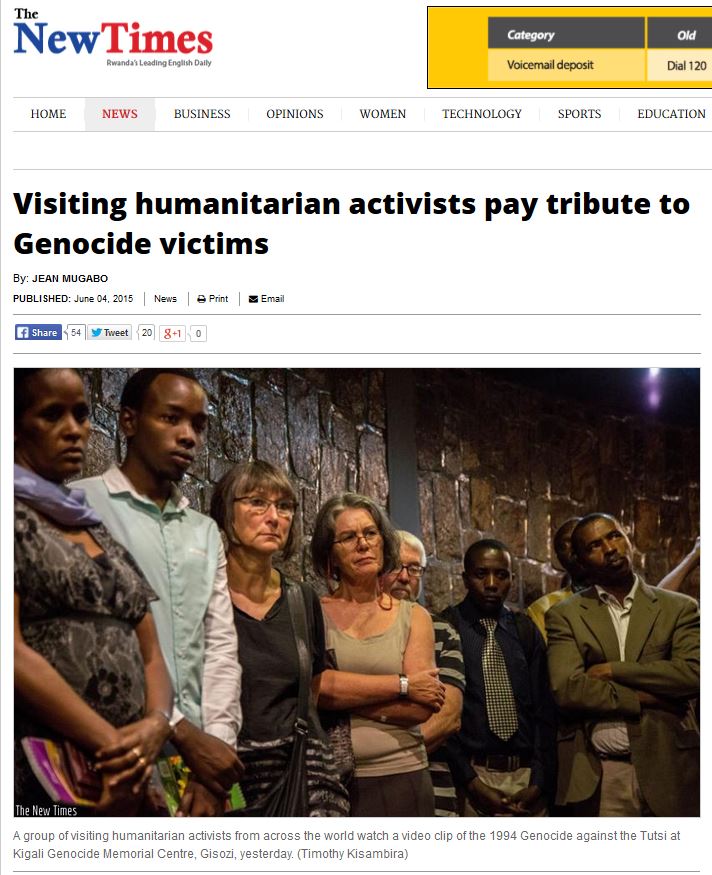 • Please click on the picture above to see the article 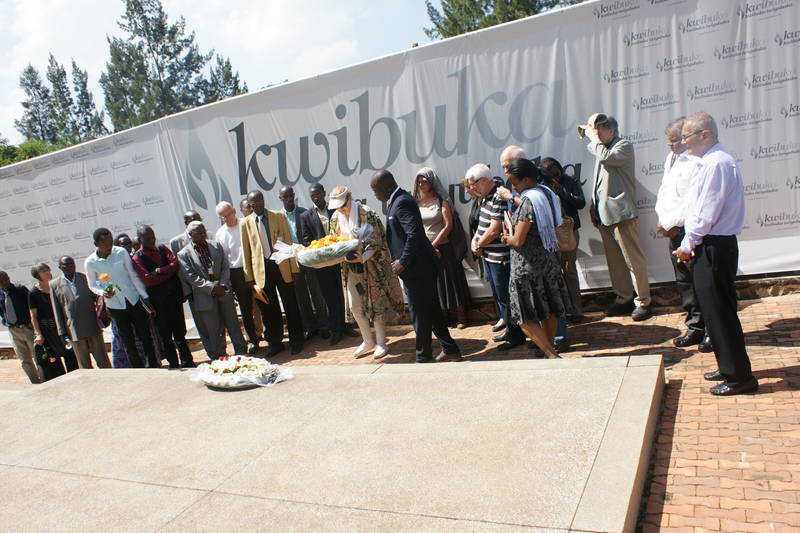 • Please click on the picture above to see the press release  • Please click on the picture above ore here to see all 50 photos kindly taken by Magnus Haavelsrud  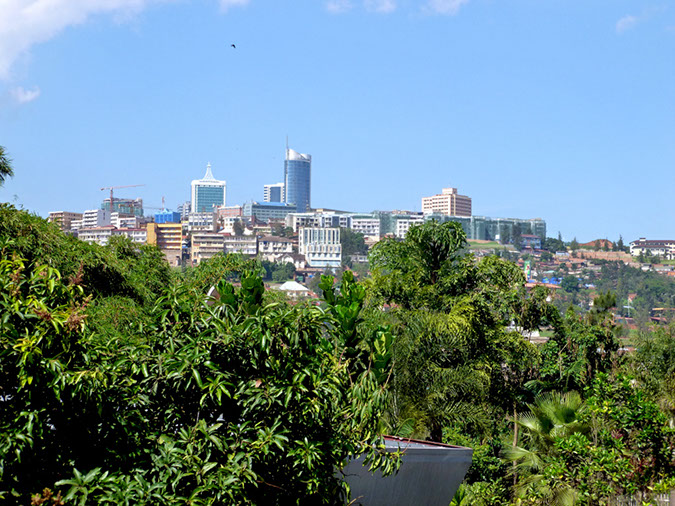   • Please click on the pictures above or here to see all 33 photos of Day Two from Evelin's camera 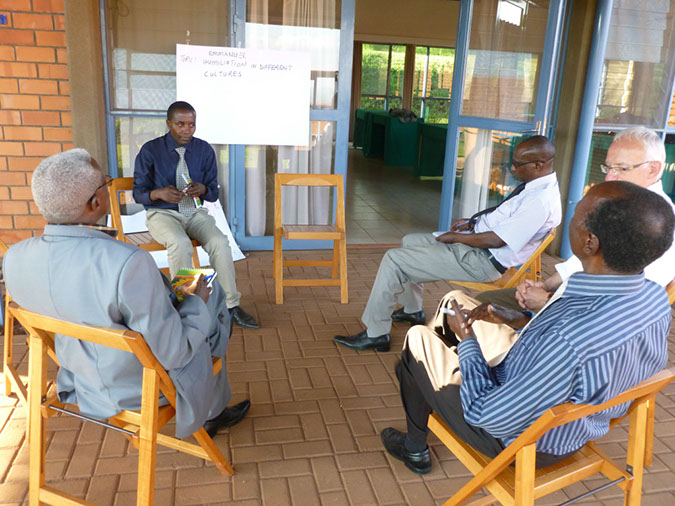 • Please click on the picture above or here to see all 32 Dignilogue posters from Evelin's camera |
| Day Two, 3rd June 2015 We first visited the Kigali Genocide Memorial of Gisozi, then were generously invited by NURC to have lunch in Umubano hotel, before returning to the Foyer de Charité to have Dignilogues. • Please click on the picture above or here to see all 50 photos kindly taken by Magnus Haavelsrud • Please click on the pictures in the middle or here to see all 33 photos of Day Two from Evelin's camera (Thank you most warmly, dear Nira Shahaf, for taking such wonderful photos!) • Please click on the pictures at the bottom or here to see all 32 Dignilogue posters from Evelin's camera • See also our Dignilogue Themes and our Appreciative Introductions |
 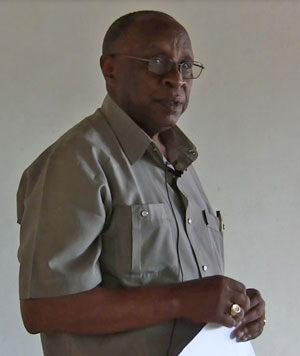  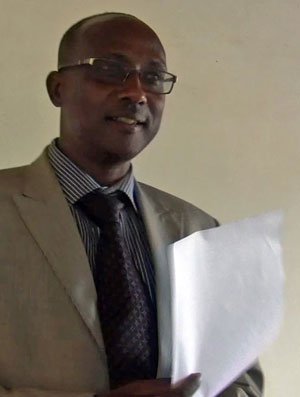  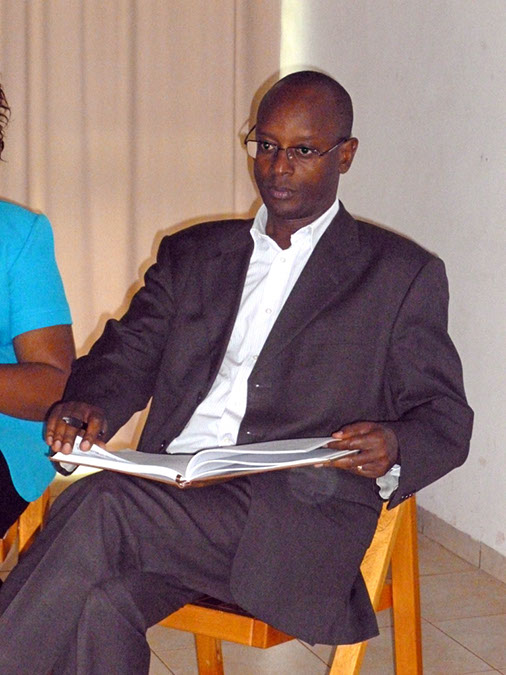  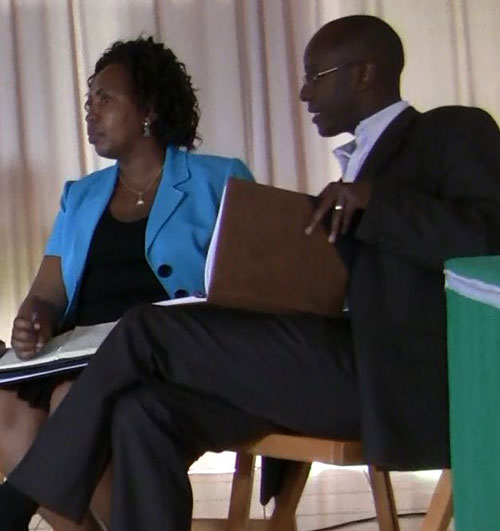      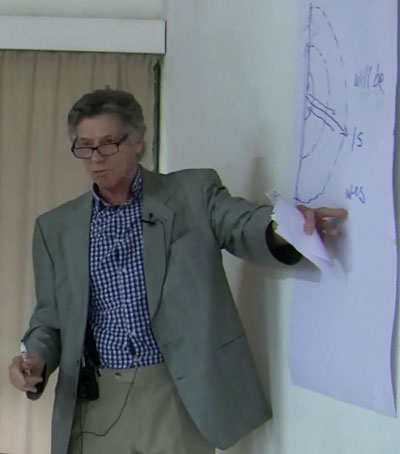 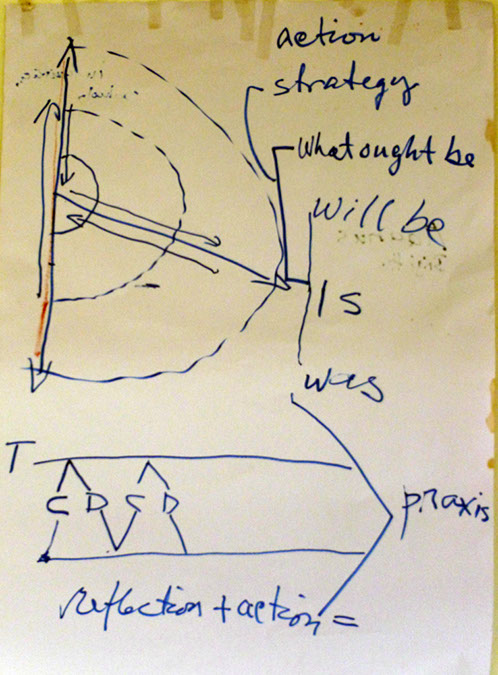 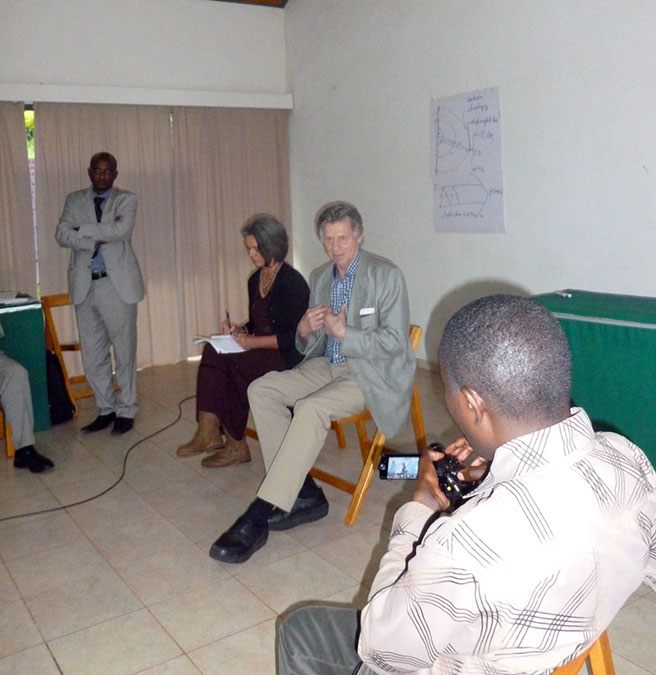 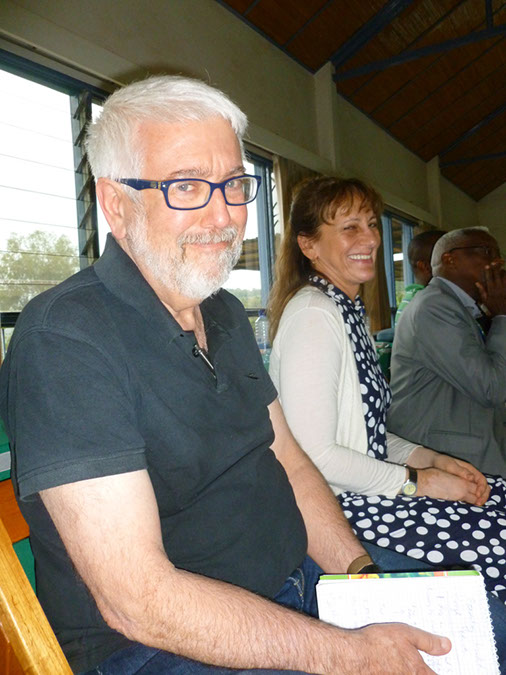 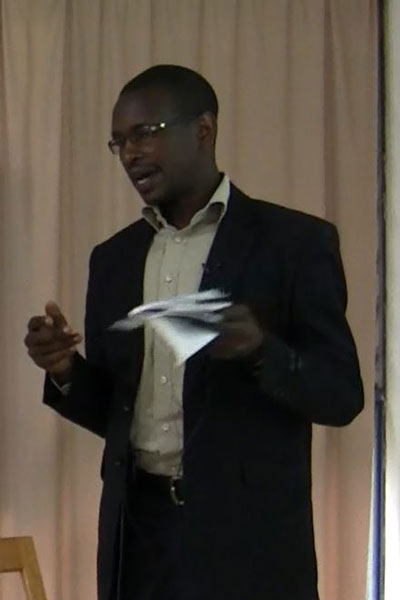   • Please click on the photo above to see the article |
Day Three, 4th June 2015, Public Event |
|
Day Three, 4th June 2015, Public Event • Please click on the photos at the top to see the video. |
    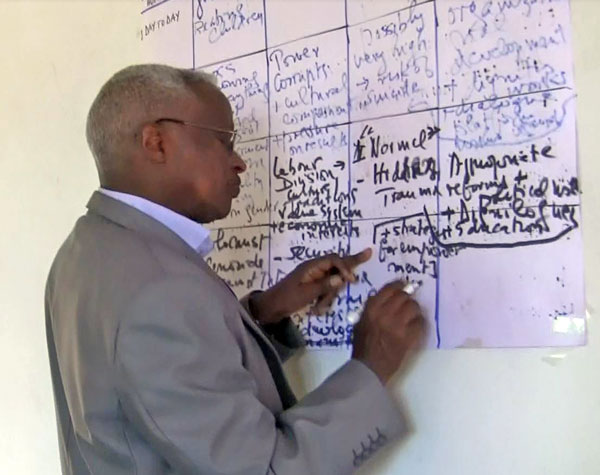 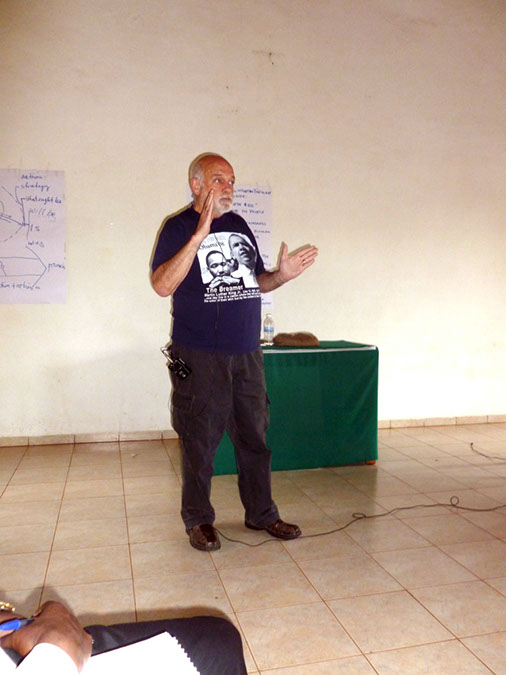 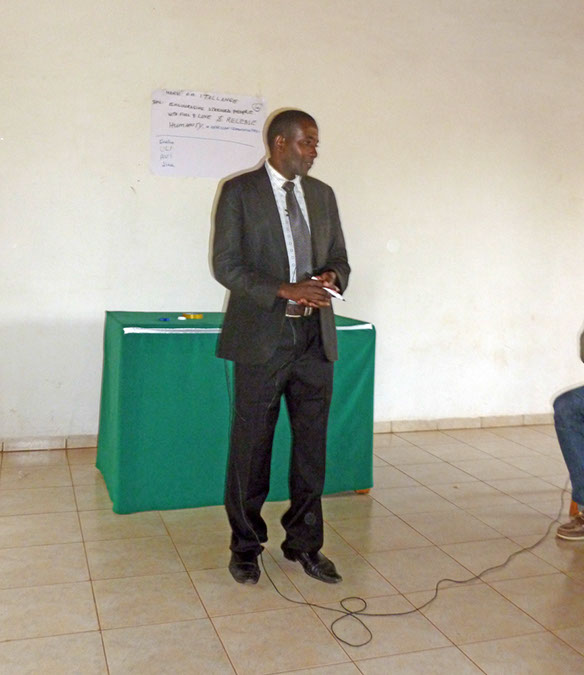 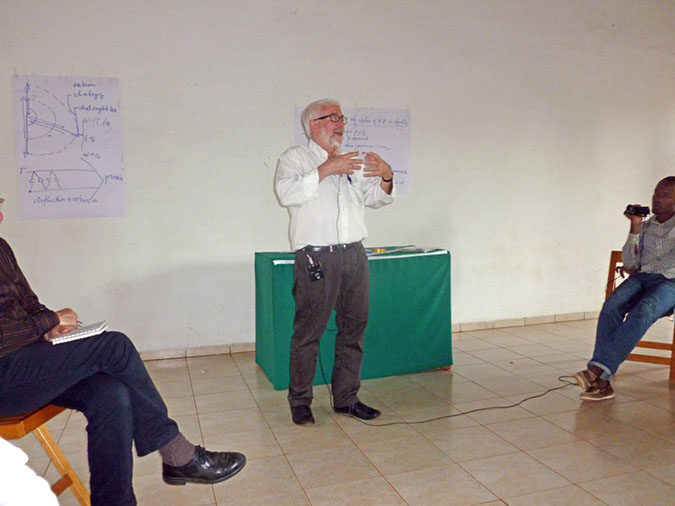 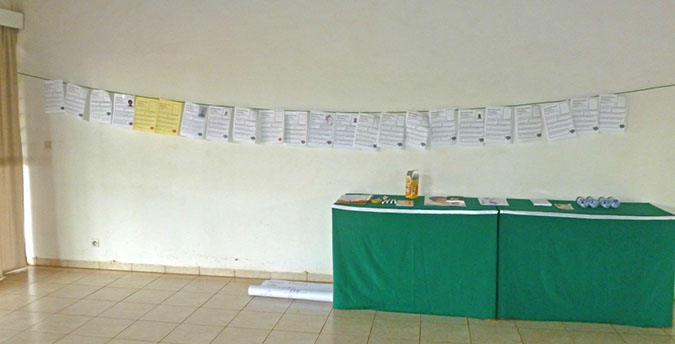 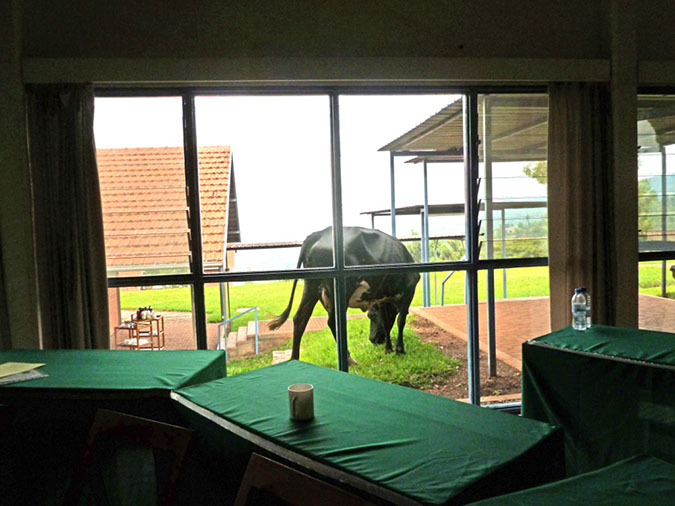 |
Day Four, 5th June 2015 Day Four, 5th June 2015: Dignilogue Summaries |
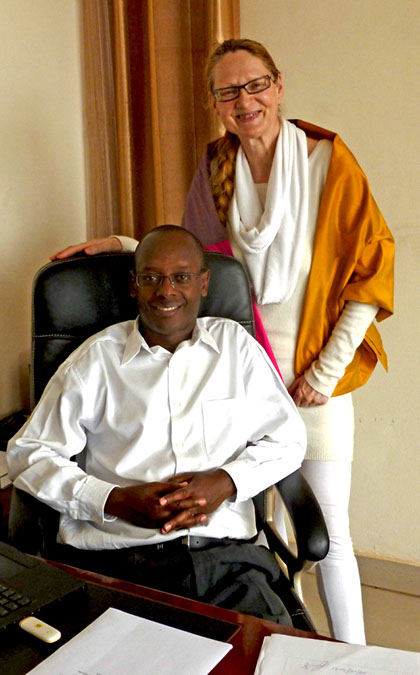  |
| On 11th June 2015, Evelin had the privilege of reconnecting with dear Jean-Damascène Gasanabo, Director General of Research and Documentation, Centre on Genocide, National Commission for the Fight against Genocide (CNLG). See two photos taken in his office in Kigali. Please see his most recent publication: Gasanabo, Jean-Damascène, David J. Simon, and Margee M. Ensign (Eds.) (2014). Confronting Genocide in Rwanda: Dehumanization, Denial, and Strategies for Prevention. Kigali, Rwanda: The National Commission for the Fight Against Genocide, Republic of Rwanda. • Please click on the pictures avove to see them larger. |
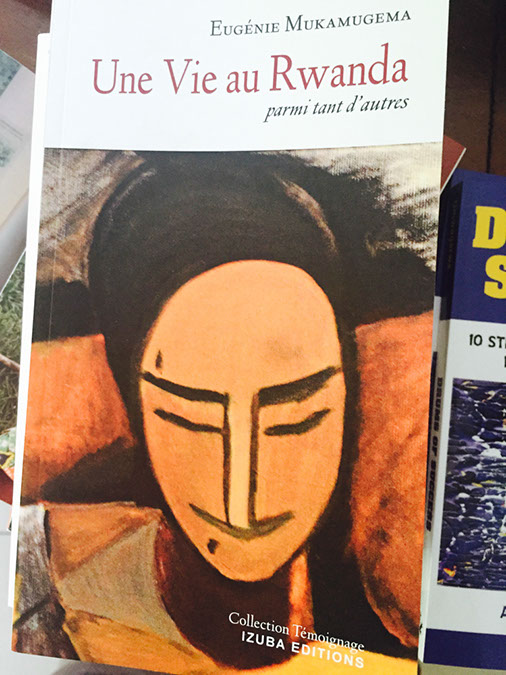    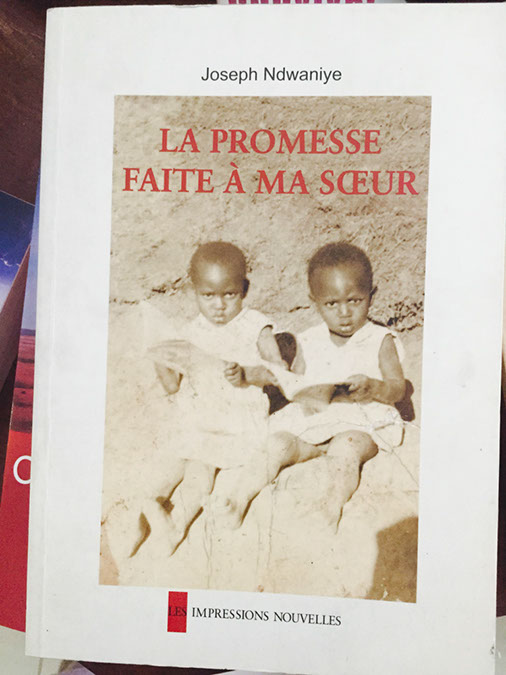  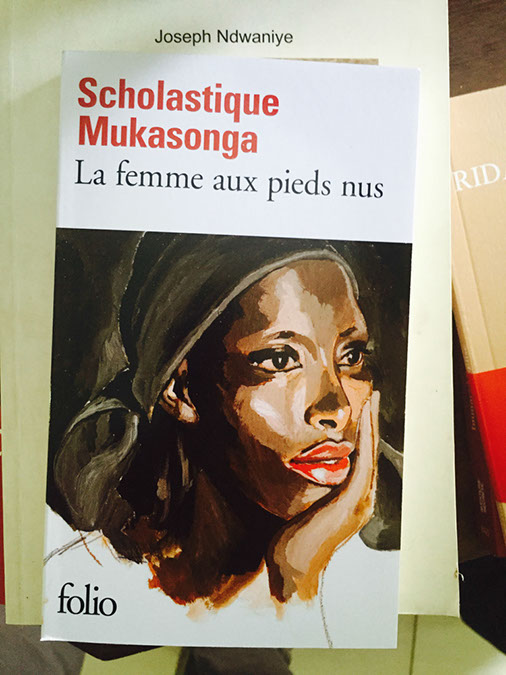 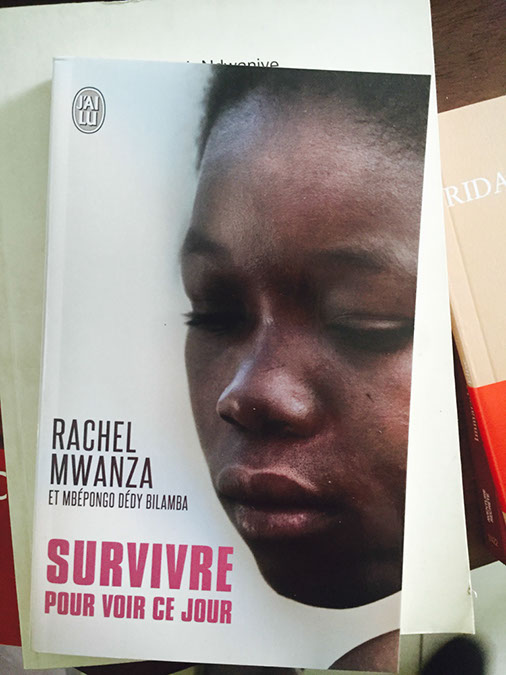  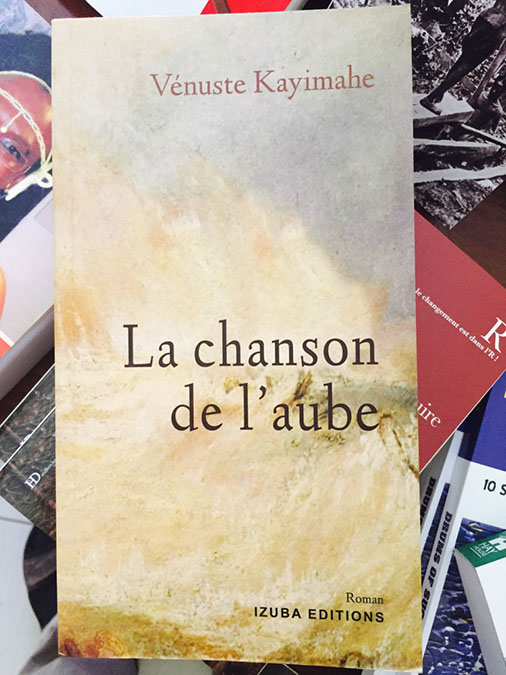 |
| Please click on the pictures above or here to see all 50 photos kindly taken by Magnus Haavelsrud. Here you see the books he found in the bookstores of Kigali. |
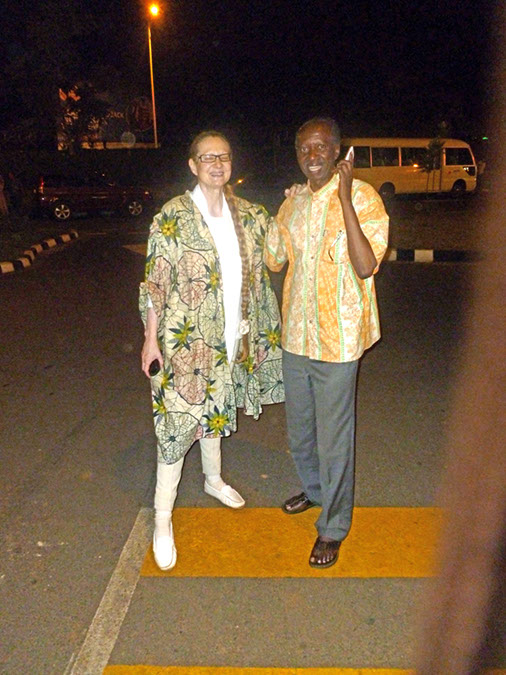  |
| Dear Emmanuel Ndahimana and Damas say good-bye at the airport of Kigali on the eve of 30th June 2015. • Please click on the pictures above or here to see all photos. |
|
On 16th May 2015, our esteemed Emmanuel Ndahimana and Evelin met with Soeur Gertrude Twagirayezu (she wears an African dress on the photos above) and Soeur Romaine to see whether our conference could take place on their premises, the Foyer de Charité (Caritas) in Rerbero-Kigali. Later, Evelin also met Soeur Mediatrice, Soeur Marie Ange, and Prêtre Pierre Claver Nkusi. It is a wonderful place, Evelin can attest for that, since she had the honour of being welcomed to live in the neighbouring convent since she arrived in Kigali on 1st May. It is beautiful and calm, and choosing this location will also express our wish to honor Felicitas Niyitegeka, who gave her life and was killed for standing by her Tutsi sisters in the genocide that ravaged Rwanda in 1994, targeting Tutsi, together with moderate Hutu who were opposed to the killing.
Our dear Father Jean d'Amour Dusengumuremyi, who has also brought Evelin to this wonderful environment, has written a book about Felicitas, on which Uli Spalthoff has worked day and night to publish it in time before our conference in our Dignity Press. Uli has offered to bring 100 copies with him in his suitcase. The book is titled 'No Greater Love: Testimonies on the Life and Death of Felicitas Niyitegeka'. The aim is to create a foundation in the name of Felicitas. |
Dear Friend! Thanks!
We had a remarkable dignity conference in Kigali, the capital of the Republic of Rwanda in the very middle of Africa! The conference was conducted in the spirit of the United Nations agenda toward 'A Life of Dignity for All', in the spirit of Umuganda 'coming together in common purpose', and as a tribute to Felicitas Niyitegeka, who sacrificed her life in the genocide that ravaged Rwanda in 1994, targeting Tutsi, together with moderate Hutu who were opposed to the killing.
Please see the report of the conference that Evelin Lindner wrote in June and which Linda Hartling was able to cut down from 60 confidential pages to 20 public non-confidential pages. We have received clearance of our hosts, the Rwandan Commission of Reconciliation (NURC) and Emmanuel Ndahihama, to publish the final version on our website. We have reason to believe that also the President of Rwanda will read it most attentively.
Please allow me to begin this newsletter by expressing my profound gratitude to our esteemed inspirer and convener, our dear Honourable Emmanuel Ndahimana, former member of government and ambassador, and to our gracious host, esteemed Honourable Bishop John Rucyahana, President of Rwanda's National Unity and Reconciliation Commission (NURC), as well as to the government of Rwanda for letting us have our conference in their country. We are hugely appreciative of Rwanda's National Unity and Reconciliation Commission for giving us so many gifts, from inviting us to lunch in Umubano Hotel, to bringing us to the Kigali Genocide Memorial of Gisozi, and inviting such eminent speakers who contributed to deepen our understanding of the painful past of Rwanda and its continuous courageous and visionary efforts, despite facing immense challenges, to transform Rwanda into a country where all citizens can live dignified lives together. And what would we have done without the loving guidance by our dear Johnson Mugaga, who stepped in for esteemed Dr. Jean Baptiste Habyalimana!
See a Press Release by NURC: 'The 25th Annual Conference of Human Dignity and Humiliation Studies held in Kigali from 2nd to 5th June 2015' (Pdf)
See also two articles in The New Times by journalist Jean d'Amour Mugago:
- 'Visiting Humanitarian Activists Pay Tribute to Genocide Victims', 4th June 2015 (Pdf)
- 'Humanitarian Activists Commit to Fight Genocide Denial', 6th June 2015 (Pdf)
And see our television appearance:
Rwanda Broadcasting Agency (RBA) News Coverage of 4th June 2015, documenting all important events taking place in Rwanda
I must admit that I lack adequate words to express my personal appreciation, recognition, and deep gratitude to all those who made this conference possible! I am so proud that we were able to honour you, dear Bishop Rucyahana and Emmanuel Ndahimana, and you, dear Dr. Jean Baptiste Habyalimana together with dear Johnson Mugaga, with our Beacon of Dignity Award!
We are also deeply thankful to the sisters of the Foyer de Charité Sainte Trinité de Rebero Kigali for so lovingly welcoming our conference to their premises. And all our gratitude goes to Father Jean d'Amour Dusengumuremyi for so wonderfully supporting our dear Emmanuel in the preparations of this conference, and for bringing the Soeurs Dominicaines and the Foyer de Charité to us. Father Jean d'Amour wrote a book about Felicitas Niyitegeka, gave her life in the 1994 genocide, published in our Dignity Press, titled No Greater Love: Testimonies on the Life and Death of Felicitas Niyitegeka.
I wish to acknowledge particularly Uli Spalthoff, who so wonderfully stepped up to take responsibility, and he did that untiringly. He took the responsibility of being the guardian of our dignity economics approach and of the practicalities of coordinating our Dignilogues, to give just two of the many examples of his immense support.
We profoundly thank Mark Itallange and Francis Nuwagaba for their hard work in recording most of our videos, and Nira Shahaf for taking such wonderful photos, together with Théoneste Hitimana. We are extremely grateful!
I also wish to thank all participants for joining hands in making this conference one of our most special and most memorable ones. Everyone participated by not only offering their particular personal perspectives, everyone also engaged in an enormously enriching process of co-creating new meaning.
I would now like to invite everyone to contribute to this newsletter with your reflections (whatever you wish to share publicly, just send it to me so that I paste it in further down)! We invite comments, thoughts, and reflections both from the participants, and from those who were with us in spirit!
Please allow me to remind you that all our conferences are part of our ongoing relationship-building work (rather than 'stand-alone' events). We wish to nurture a global community of people who strive to bring more dignity into the world. Our 25th Annual Dignity Conference was yet another opportunity, unique in its intensity, one that deeply inspired me also personally. The diversity of backgrounds of our participants was remarkable, these are just a few examples: North America, Germany, South Africa, Tanzania, Uganda, Israel, Norway/global, or Silesia/global. Many of the participants in our conferences and many members in our global network share a biography of journeying, geographically and also with respect to their life paths and experiences. Many have had profound turning points in their lives, often akin to near-death experiences, which often foster deep change.
As you have noticed, we strive to conduct our conferences in ways that are different to mainstream conferences. Our conferences are designed to transcend the 'guru' model of having one or two noted celebrities orchestrating the experience for the non-celebrities. We wish to avoid a top-down approach to organising. Rather, we strive to practice a ripple-out approach, cultivating mutually beneficial action that emphasises loving service (rather than servitude!). We strive to refrain from relegating 'administrative' work to secretaries or marginalised members of society. We invite universal responsibility that encourages everyone to step in and contribute according to their interests, abilities, and passions.
In traditional conferences, participants arrive with the tacit expectation to spend the day more or less isolated, either as presenters or listeners, and when the official day ends, they expect to dissipate to do 'their own thing'. The only time when everybody is drawn together officially, at least to a certain degree, is during what is called Q&A (questions and answers, rather than dialogue). Group-building is relegated to the coffee-pauses or friendships being nurtured privately on the sidelines. As a result, very often, there is a widespread sigh after conferences: 'I had to give a paper to get funding for the conference, but slept through the presentations of the others, only the coffee-breaks where really good, because I enjoyed meeting old friends'.
The most important aim of our conferences is to transcend this state-of-affairs and to make clear that the 'work' of building a dignity family is the most important feature of our conferences. Our participants are invited to take responsibility for this process also outside of the 'official' schedule. Linda and I personally see our main task in nurturing this social-psychological connectivity rather than in the administration or scheduling of our conferences, as important as also this is for a dignified conference. We wish to nurture a climate of togetherness in equal dignity, of holding hands as human beings among human beings (Ubuntu), who act together in a spirit of mutual responsibility for each other, and who engage in mutual learning and teaching. We aim for a style that manifests the fact that we are one single human family on one single tiny planet, and that we have to learn to act like a good family if we wish to survive as a species. In our work, we wish to stay clear of abusing this connectivity for ulterior purposes, be they ideological, religious, monetary, or else. This approach includes also the pauses and the evenings.
In sum, the Dignilogues of our conference were yet another of our 'unconference' conferences: It was a co-created sharing of insights. Rather than organising time around keynote presentations, we strove to take a collaborative approach to planning our time together. More precisely, we used the format of Open Space Dignilogue Sessions. These are conversations on topics proposed by participants. On the first day of the Dignilogue Workshop, we invited everybody to suggest a topic and to be a facilitator/leader for her or his dialogue session. Those participants who proposed a topic, described it to the group. Then, collectively, we combined and prioritised ideas as needed to finalise the schedule for the rest of the conference. The Open Space process encouraged all of us to meet in a spirit of mutual support, equal dignity, and flexibility, which enriched the conversations throughout our 'unconference' conference.
Let me now explain our solidarity economics approach (see also my book A Dignity Economy). All participants are gifting their time pro bono. Our work is a labour of love. Nobody is being paid or gains monetary advantages from our work. Our human dignity movement has an almost zero budget. We refrain from going down the path of so many not-for-profit initiatives, which end up becoming as profit-oriented as for-profit businesses, or even more. We do whatever we can to refrain from building an 'empire' of our work. What we wish to do instead, is to nurture dignity, at all levels and in all details of our work. We wish to highlight our shared humanity on our home planet, rather than abusing social-psychological connectivity for 'empire building'.
There are no registration fees for our HumanDHS conferences (or our online sessions). By practicing a 'lean, green' spirit of shared responsibility, our HumanDHS community has conducted these events for more than a decade by assessing our expenses during the conference and inviting participants to contribute according to their ability (we also gladly welcome electronic contributions in support of our work). I myself live almost without money and do not receive monetary remuneration for my dignity work, which I consider to be a labour of love which I gift to our human family. In our conferences, we always attempt to find ways to cover the cost throughout the conference in the most dignified and dignifying ways. Please join me in thanking Uli for his immense efforts, and everyone else for their contributions! Not everybody could carry the cost of the meals at our conference venue. We are deeply thankful to Linda Hartling and Michael Britton for shouldering the largest part of the missing amount, and to Uli for having built up Dignity Press so that it also could contribute. Throughout the preparations for this conference, also Emmanuel Nhadimana has continuously extended his generous support to us. In this way, we were able to honour those who contributed more in kind than in monetary ways. We send you all our profound gratitude for your generosity! You are beacons of dignity in this world!
At all our conferences, all participants are fully responsible for bearing the cost of their own travel, transportation, and accommodation arrangements. We always kindly ask local participants who reside in close proximity of the conference venue to lend a helping hand to those traveling from afar, which also helps us keep our events collaborative and affordable for all. Allow me to extend our deep thanks to all those who reside in Rwanda and generously gave their support to our foreign participants!
A reason for sadness was that Linda Hartling and her husband Richard Slaven could not be with us in person, due to their family health situation. However, they were very very close in spirit. Thank you, dear Linda!
Please see a list of the videos that Linda Hartling created so as to be with us from afar:
Please see Introductory Videos created by Linda Hartling:
• Dignilogue: An Introduction to Dignity + Dialogue, created on 31th May 2015 for our 2015 Kigali Conference
• Greetings to All (short version), created on 16h April 2013 for our 2013 South Africa Conference
• Greetings to All (long version), created on 16h April 2013 for our 2013 South Africa Conference
• Welcome to Everybody, created on 12th August 2012 for our 2012 Norway Conference
• Our Open Space Dignilogue Format, created on 12th August 2012 for our 2012 Norway Conference
• Please see also the videos on our Appreciative Frame, created by Linda Hartling:
- Appreciative Enquiry 4, a video that was recorded on May 27, 2015, in Portland, Oregon, USA, by Linda Hartling, for the 25th Annual Conference of Human Dignity and Humiliation Studies, in Kigali, Rwanda, 2nd - 5th June 2015.
- Our Appreciative Frame 3, a video created in December 2014 (see also Pdf), for the 2014 Workshop on Transforming Humiliation and Violent Conflict, in New York City, December 4–5, 2014.
- Appreciative Enquiry 2, a video that was uploaded onto YouTube on August 11, 2012, in preparation of the 19th Annual Conference of Human Dignity and Humiliation Studies, 27th-30th August 2012, in Oslo, Norway.
- Appreciative Enquiry 1, a video that was recorded on October 30, 2011, in Portland, Oregon, USA, by Evelin Lindner, for the World Dignity University initiative.
We warmly welcome you to our future conferences. Your participation is of great importance. We are certain that your contribution will have enduring reverberations not only for your work, but also for our dignity network of scholars and practitioners working throughout the world.
Francisco Gomes de Matos, peace linguist from Recife, Brazil, co-founder of the World Dignity University initiative, kindly sent us a 'Communicative Dignity: A Checklist' from Recife, Brazil, where he concludes that 'dignity is more than a quality; it is the essence of our humanity'.
May we extend our very warmest thank-you to YOU ALL!
There are no words to express our appreciation for your amazing contributions!
Evelin & Linda, on behalf of our entire network, 2015
Evelin Lindner's reflections after our conference
I had the privilege of meeting with his Excellence, the German Ambassador to Rwanda, on 7th May, and I thank him very much for sharing the following with me, I summarize and paraphrase (the conversation took place in German):
German history and experience with suffering brings Germans closer to the pain in Rwanda than other countries, and makes many Germans more willing to understand the exceptionality of the situation in Rwanda, and that it cannot be compared with what otherwise would be regarded as a “normal” situation. When people travel to Asia, they often prepare themselves with seminars and trainings, in Africa it seems that many people expect that they have nothing to learn, that they know everything beforehand, even to the point of arrogantly lecturing Africans. Of course, it is true that many African leaders do not work for the common good. Therefore, it is particularly remarkable that only in Rwanda and South Africa there is public health care for the poor. This is a sign of a sense of responsibility for the welfare for the people. In other parts of the world, people die when they cannot pay for medical care. In 1994, Rwanda was a failed state, and what has been achieved since, is immense.
Democracy takes time, it is not a machine. There is a considerable amount of freedom of press in Rwanda, for instance, the Ambassador buys every Monday the The EastAfrican newspaper, which is forbidden in a neighbouring country. Arrogance and lack of understanding for the scale of the problems this country faces is unadvisable.
The Ambassador shared that he is proud of the German foreign policy of what could be called an 'equality in dignity' approach. He rerported that 'dealing on an equal footing with one another' ('auf gleicher Augenhöhe') is an expression that often occurs in the new policy strategies of the German Foreign Office ('in der neuen Richtlinie des Auswärtigen Amtes').I am writing these lines in the convent of the (French-speaking) Soeurs Dominicaines in Rebero-Kigali, Rwanda, on a hill above Kigali in the Kicukiro District, where I have lived since 1st May 2015. It is adjacent to the Foyer de Charité Sainte Trinité de Rebero Kigali, where our conference took place. It is also not far from the Nyanza Genocide Memorial Centre. The Kicukiro District has altogether six genocide memorials, among them the Nyanza Memorial site, home to about 11,000 victims of the 1994 genocide. The Nyanza site is a symbol of international failure to protect Tutsi from being killed. The other is Rebero Genocide Memorial where 14,000 are buried, including politicians who were killed during the genocide.
The Rwanda of today stands in between the promises and the dilemmas that this world offers and suffers, and it does so in very particular ways. The promise is to achieve dignity through economic growth, supported by reconciliation within society, which, as I had the privilege to be a witness of since I arrived, is the path the country’s government has chosen and carries out with great concern for the common good. Public health care is one example that also the German Ambassador mentioned: in Africa, only South Africa and Rwanda offer public health care. Great attention is also given to the perils of corruption, for instance, and this stands in contrast to so many other world regions which are marred by elites enriching themselves by exploiting the rest. It is, furthermore, safe to walk in the streets or Rwanda, even at night, in contrast to many other countries (South Africa is a particularly sad example), and the first obvious impression each visitor is awed with, is the stunning cleanliness of Rwanda, in contrast to the piles of rubbish and plastic spoiling so many other world regions. Rwanda has often been compared with Switzerland, yet, I can attest that its cleanliness is even more advanced than that of Switzerland (plastic bags are forbidden in Rwanda). All this is being achieved, while the country is situated in a region in which violence is ripe and a never-ending threat to all sides, including also the security of this country. All this is being achieved all the while the promise of dignity through economic growth has its dangerous pitfalls as well, as was illustrated, not least, by the number of “profiteering” non-profit organizations that flooded Rwanda after the 1994 genocide.
When I lived in Rwanda in 1999, I saw with my own eyes how some 200 humanitarian NGOs had arrived in Rwanda after the 1004 genocide to help rebuild it, and I very much resonate with the Rwandan president Paul Kagame’s evaluation, that many came with a “mixture of naivety and entitlement that came along in their cultural baggage.” Eighty of them were asked to leave and of the rest, Kagame says: “Of the rest, you would be lucky to find five in 100 that are doing it altruistically. The others will choose for you where you should put their money, and try to control what you do in other areas. They come here knowing almost nothing, understanding almost nothing, and they judge and criticize and tell you what you should do. A big part of the misunderstanding is that they expect us to be a normal country, like the ones where they are from. They do not understand that we are operating in a very different context.” I deeply resonate with Kagame’s words here, since I have observed exactly the same, clearly, not just in Rwanda. Evidently, the vulnerability that crises such as genocide bring to the fore - or other catastrophes for that matter, such as earthquakes or tsunamis, as well as weak and failing states - function as magnets not just for altruism, and this happens everywhere on this globe.
This conference was one of the most rewarding conferences we ever had. I was glad about the questions of the journalists who were so kind to come to our conference. I started out by saying that my aim is to turn the tables: in former times colonizers would come and tell Africans what to think and what to do, while I come to listen to the experiences of Africans. I said that the world today finds itself in a critical situation, a situation where we as humankind have to find ways to live together in dignity on a planet that has limited resources. In Rwanda, people try to live together after the most atrocious mayhem. This experience, as painful as it was and still is, is extremely valuable to learn from for the world. During the past 40 years, I have lived globally, on all continents of this planet, and I have seen with my own eyes, everywhere on our globe, an alarming degradation of the environment and of social cohesion. Therefore, I am painfully aware that while Rwanda is burdened with genocide, the world is burdened with the looming risk of what may be called ecocide and sociocide. And this, despite of, and because of, Western achievements. As far as I observe globally, the dominator spirit that informed colonization is still vibrant and now colonizes the entire world. If we, the human family, wish to find a way to live together in dignity on our tiny planet, we urgently need to overcome this dominator spirit. And this is not just a luxury problem, it is at the core of any prospect for a dignified survival of humankind on this planet. Therefore, it is of utmost importance for the world to listen to the experiences of countries like Rwanda. In our globally interconnected world of today, it becomes utterly clear that everybody’s individual self-interest to want to live a dignified life is bound up in the common interest of all humankind to do so. In this situation, dignity defined as solidarity is one core ingredient that is needed. And this definition of dignity can be found, among others, in Africa. It is emphasized, not least, by the African philosophy of Ubuntu, “I am because of us.”
I am also glad that we could convery the overall message of our work, which is the Mandela path toward dignity. In my Making Enemies book published in 2006, I wrote on pages 176–175: “A host of misreadings typically occurs when we speak about humiliation, misreadings that in themselves often have a humiliating effect... Understanding humiliation is not to be confused with condoning mayhem. Feelings of humiliation do not render a “license” to commit atrocities. Feelings of humiliation do not automatically lead to violence. Nelson Mandela did not unleash genocide on the white elite in South Africa. After 27 years of humiliation in prison, he emerged as a wise peace maker, not as a humiliation-entrepreneur like Hitler.”
In other words, in order to achieve dignity and avoid that humiliation leads to violence, dignity and humiliation must be better understood – which is the aim of our research – because there is no automatism that humiliation must lead to violence (see Nelson Mandela), and, furthermore, it ought not lead to violence, because, rather than healing humiliation, cycles of violence only humiliate and dehumanise all involved, including the perpetrators.
As to our appreciative approach to conferencing, in my 2010 book Gender, Humiliation, and Global Security, I have analysed how the dominator model of society (Riane Eisler's coinage) has emerged and how it currently changes from being expressed in traditional status rankings to what is called inequality, meaning economic inequality. Clearly, as also Riane Eisler points out, in the interdependent world of present-day times, what is needed most is partnership rather than domination, partnership based on social-psychological connection, cohesion, and cooperation between people. Yet, though this is what is needed most, it is also the most neglected. It is relegated to something that an insignificant female, be it a wife or female secretary, or other marginalised care-givers can manage without due recognition or just reward. Many will admit that also in Western societies, still today, it is often the wife or secretary who is the one to remember birthdays, harmonise relationships, and altogether shoulder the responsibility of care-giving, while men do 'business'. The very skills and functions of partnership that we are in dire need of in our present historical times are represented as 'soft', inconsequential, 'female' functions in society, while destructive cut-throat hierarchical competition for domination is overvalued and glorified as tough, strong, and 'hard maleness'. This is then proclaimed as normal and necessary (as to be observed, for instance, in action hero movies). The opposite is the truth. Society would not exist without the crucial relational work that nurtures healthy children, families, and communities. Admittedly, the division of labour between female care-giving on one side, and traditional male 'heroism in war' on the other side did have its rationale - it might indeed have won wars when the world still was a world of either dependence or independence. Yet, nowadays, interdependence introduces a whole new situation which requires a totally novel set of ground rules.
Please read more in the report of the conference that Evelin Lindner wrote in June and which Linda Hartling was able to cut down from 60 confidential pages to 20 public non-confidential pages. We have received clearance of our hosts, the Rwandan Commission of Reconciliation (NURC) and Emmanuel Ndahihama, to publish the final version on our website. We have reason to believe that also the President of Rwanda will read it most attentively.
Your reflections before and after our conference
Emmanuel Ndahimana (June, 11, 2015):
This is a remarkable webpage for a remarkable Conference. Thank you Evelin for this excellent presentation. This will help those who couldn't participate in the Kigali Conference and indeed all those who are interested in the subject will find on the Webpage all the references they need to expand their reflections and research. Amazing Evelin. I'm so impressed by your achievements in helping our global humanity to be better.
On a personal note: the Conference has been a blessing and I discovered how many things we can achieve when we decide to work together in trust and respect. My special thanks to the team of NURC, my friend and respected Bishop, Dr. Jean Baptiste and Johnson. Thank you for the Beacon of Dignity Award. So proud of it. I will continue to work in order to deserve it in the future. For now you were kind to give me that recognition in order to encourage me in my future endeavour. Emmanuel Ndahimana
Announcements and Good News
• HumanDHS Good News, 2014
• The Dignity Press flyer of 2014
• An Introduction to HumanDHS, March 2013
• A Quick Fact Sheet, March 2013
• Information About Our Leadership and Collaborative Teams, March 2013
• A Collection of Pictures, Including the Book Covers, March 2013
Welcome Again!
We would like to end this newsletter by thanking all conference participants for co-creating a deeply enriching experience. All our network members have been with us in spirit throughout the conference, and we are very grateful for their ongoing encouragement and support.
Please be most warmly welcomed to our future conference:
New York in December 2015, then in Dubrovnik, Croatia, September 2015, in New York in December 2016, and in Indore, India, in 2017.
WELCOME!!!
Linda & Evelin, June 2015

